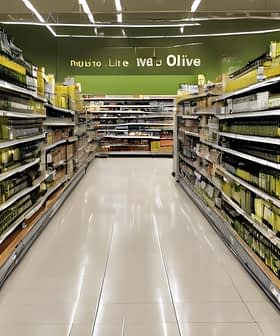Romanian consumers will soon see Nutri-Score front-of-pack nutrition labels (FOPL) on packaged food items sold by retailers nationwide.
Romanian authorities held a public consultation to fine-tune the regulations for introducing Nutri-Score, stating that adopting the FOPL will help Romania align with European Commission recommendations.
Nutri-Score is a traffic-light-style FOPL that uses a combination of five coordinated colors and letters to rate how healthy a packaged food item is based on its fat, sugar, salt and calorie content per 100-gram or milliliter serving. The “Green A” indicates the healthiest option, and “Red E” denotes the least healthy.
See Also:New Research Rekindles Debate on Nutri-Score’s EffectivenessFollowing recent updates to the Nutri-Score algorithm, all olive oils are now classified as “Light-green B” instead of “Yellow C.”
The Romanian government’s decision follows a temporary ban imposed by the local consumer protection authority last year.
This new approach will allow producers to voluntarily place the Nutri-Score logo on their products. However, retailers are required to display Nutri-Score-labeled foods separately from other products.
A QR code must accompany the logo to give consumers more detailed nutritional information about the product. Failure to include the logo where required will result in significant fines.
Furthermore, the Nutri-Score label will not be applied to foods with Protected Designation of Origin (PDO) or Protected Geographical Indication (PGI) certifications.
PDO and PGI
Products with a Protected Designation of Origin (PDO) or Protected Geographical Indication (PGI) certification are agricultural or food items whose qualities, reputation and characteristics are closely linked to their geographical origin. PDO products are usually focused on a subregion while PGI products cover larger areas. These designations ensure that products, such as extra virgin olive oils are produced using traditional methods and adhere to strict quality standards.
More specifically, the decree signed by Romanian Prime Minister Marcel Ciolacu stated that “the provisions of this decision do not apply to traditional Romanian products, locally sourced products, or products with protected geographical indications, designations of origin, or guaranteed traditional specialties.”
According to government documents, many consumers lack the knowledge to interpret nutritional information correctly.
“Studies have shown that Nutri-Score labels can influence purchasing behavior, leading to healthier choices and a positive long-term impact on public health,” government officials noted in the public consultation documents.
The government also highlighted the potential for Nutri-Score adoption to address issues such as obesity, diabetes, and cardiovascular disease.
According to the government, food producers will be encouraged to improve the nutritional profiles of their products to achieve better Nutri-Score ratings.
The new rules will come into force 60 days after publication in the official legislative gazette.
Currently, Nutri-Score is used in France, Belgium, Germany, Luxembourg, Spain and the Netherlands. Switzerland has also adopted the logo, which originated in France.
However, the FOPL is quite controversial. Several countries have made a concerted effort to prevent its widespread adoption in the European Union, and some early adopters have changed course.
The French multinational food company Danone recently announced that it would remove the Nutri-Score label from many of its products.
According to Danone, the latest revision of the Nutri-Score algorithm unfairly penalizes its drinkable dairy and plant-based products.
During its last mandate, the European Commission hinted that Nutri-Score could be chosen as a European-wide FOPL. However, intense debate led Brussels to temporarily pause the process.
Observers have noted that the outlook may change with the new commission, which officially begins its term on December 1st.
Christophe Hansen, the new European Commissioner for Agriculture and Food, is expected to unveil the E.U.‘s new agricultural strategy soon. Some anticipate that the plan will include a proposal for an E.U.-wide FOPL.









